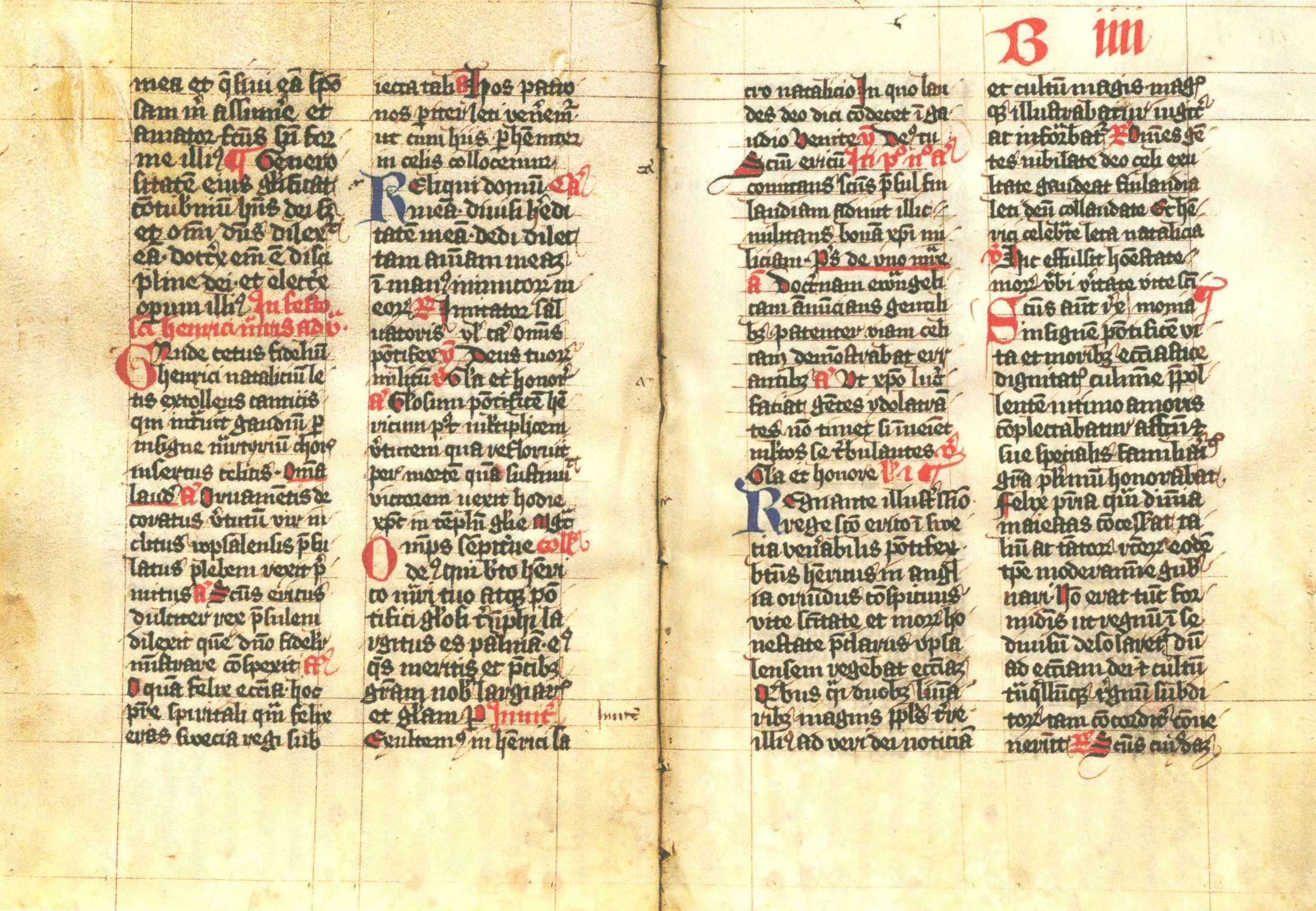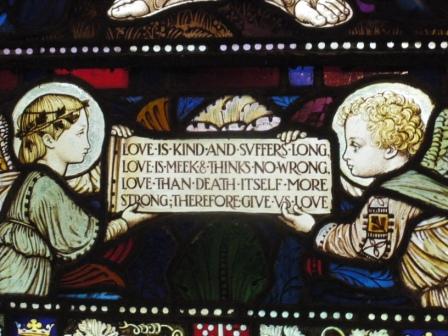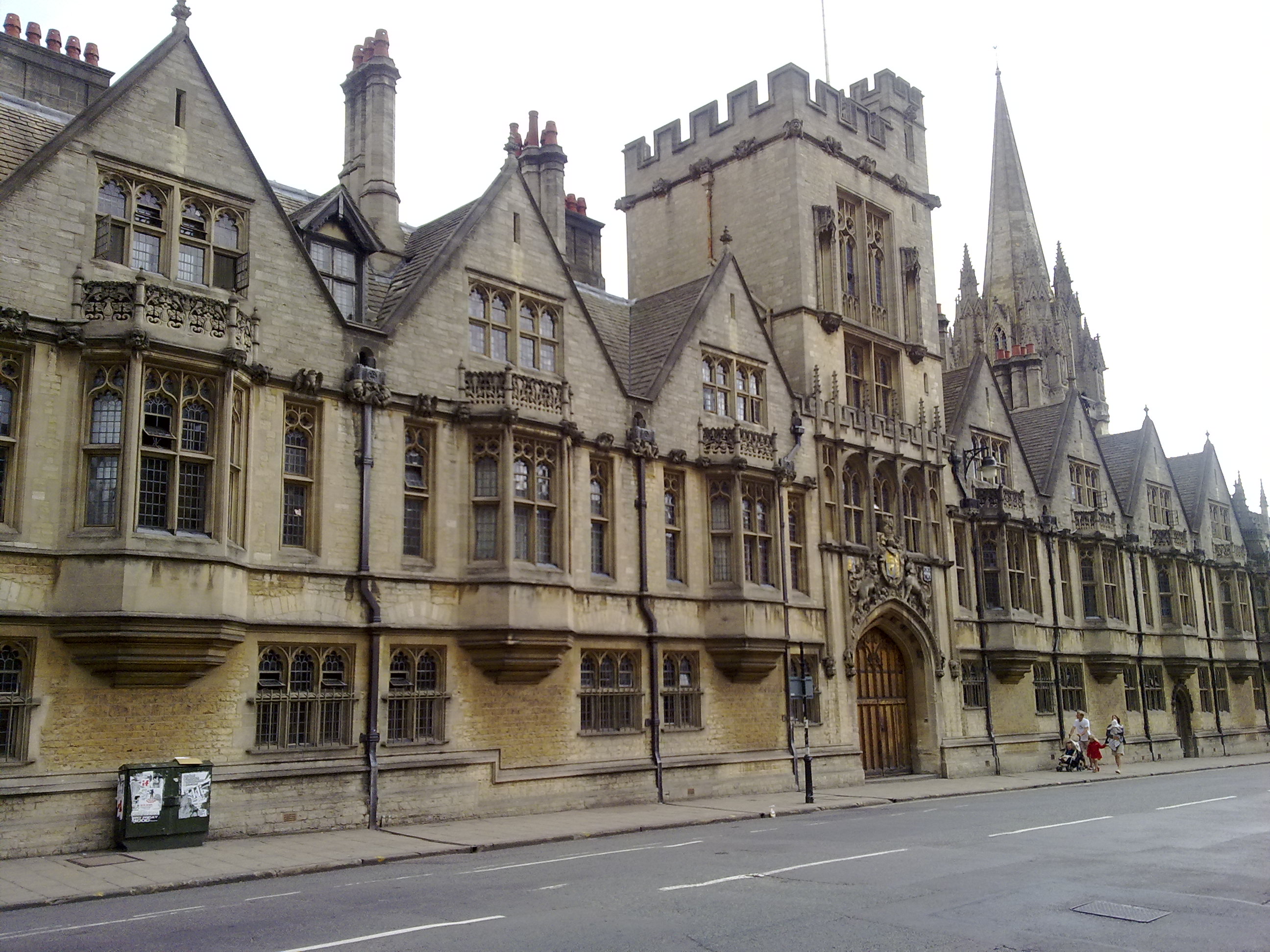|
Hymns Ancient And Modern
''Hymns Ancient and Modern'' is a hymnal in common use within the Church of England, a result of the efforts of the Oxford Movement. The hymnal was first published in 1861. The organization publishing it has now been formed into a charitable trust, Hymns Ancient and Modern Ltd, and it publishes a wide range of hymnals as well as other theological and religious books and magazines, under imprints including the acquired publishers Canterbury Press and SCM Press. Origin Hymn singing By 1830 the regular singing of hymns in the dissenting churches (outside the Church of England) had become widely accepted due to hymn writers like Isaac Watts, Charles Wesley and others. In the Church of England hymn singing was not an integral part of Orders of Service until the early 19th century, and hymns, as opposed to metrical psalms, were not officially sanctioned. From about 1800, parish churches started to use different hymn collections in informal services, like the ''Lock Hospital Col ... [...More Info...] [...Related Items...] OR: [Wikipedia] [Google] [Baidu] |
Sir Henry Williams Baker, 3rd Baronet
Sir Henry Williams Baker, 3rd Baronet (27 May 1821 – 12 February 1877), was an English Anglican priest and hymnwriter. Biography Baker was the son of Vice-admiral Sir Henry Loraine Baker, C.B., by his marriage with Louisa Anne, only daughter of William Williams, Esq., of Castle Hall, Dorset. His father served with distinction at Guadeloupe in 1815. His grandfather was Sir Robert Baker of Dunstable House, Surrey, and of Nicholashayne, Culmstock, Devon, on whom a baronetcy was conferred in 1796. Sir Henry Williams Baker was born at Brunswick House, Vauxhall, London, on Sunday, 27 May 1821 in the house of his maternal grandfather. After completing his university education at Trinity College, Cambridge, took his B.A. degree and holy orders in 1844, and proceeded M.A. in 1847. In 1851 he was presented to the vicarage of Monkland near Leominster. On the death of his father, on 2 November 1859, he succeeded him as third baronet. In 1852, while at Monkland, Sir Henry wrote his ear ... [...More Info...] [...Related Items...] OR: [Wikipedia] [Google] [Baidu] |
Breviary
A breviary () is a liturgical book used in Christianity for praying the canonical hours, usually recited at seven fixed prayer times. Historically, different breviaries were used in the various parts of Christendom, such as Aberdeen Breviary, Belleville Breviary, Stowe Breviary and Isabella Breviary, although eventually the Roman Breviary became the standard within the Roman Catholic Church (though it was later supplanted with the Liturgy of the Hours); in other Christian denominations such as the Lutheran Churches, different breviaries continue to be used, such as The Brotherhood Prayer Book. Different breviaries The "contents of the breviary, in their essential parts, are derived from the early ages of Christianity", consisting of psalms, Scripture lessons, writings of the Church Fathers, as well as hymns and prayers. From the time of the early Church, the practice of seven fixed prayer times, being attached to , have been taught; in '' Apostolic Tradition ... [...More Info...] [...Related Items...] OR: [Wikipedia] [Google] [Baidu] |
Matthew Bridges
Matthew Bridges (14 July 1800 – 6 October 1894) was a British-Canadian hymnodist. Life Bridges was born in Essex, England on 14 July 1800, the youngest son of John Bridges of Maldon, Essex and brother of the Rev Charles Bridges, a priest of the Church of England. He matriculated at Magdalen Hall, Oxford in 1831. Matthew Bridges' career as an author began with his poem ''Jerusalem Regained'' at the age of 25 in 1825. Although in his early life Bridges (who was raised in a Church of England environment) was skeptical of Roman Catholicism as evidenced by his 1828 book ''The Roman Empire Under Constantine the Great'', the influence of John Henry Cardinal Newman led him to convert to Roman Catholicism in 1848 at the age of 48, a faith to which he adhered for the remaining four-and-a-half decades of his life. Later in life, Bridges lived for a time in Quebec, Canada, but returned to England and died in Sidmouth, Devon on 6 October 1894 at the age of 94. He is buried there in the ce ... [...More Info...] [...Related Items...] OR: [Wikipedia] [Google] [Baidu] |
Christopher Wordsworth
Christopher Wordsworth (30 October 180720 March 1885) was an English intellectual and a bishop of the Church of England. Life Wordsworth was born in London, the youngest son of Christopher Wordsworth (divine), Christopher Wordsworth, Master of Trinity, who was the youngest brother of the poet William Wordsworth. Thus, Wordsworth was a nephew of the celebrated poet. Wordsworth was the younger brother of the classical scholar John Wordsworth (scholar), John Wordsworth and Charles Wordsworth, Bishop of Saint Andrews, Dunkeld and Dunblane. He was educated at Winchester College, Winchester and Trinity College, Cambridge, Trinity, Cambridge. Like his brother Charles, he was distinguished as an athlete as well as for scholarship. He won the Chancellor's Gold Medal for poetry in 1827 and 1828. He became senior classic, and was elected a fellow and tutor of Trinity in 1830; shortly afterwards he took holy orders. He went for a tour in Greece in 1832–1833, and published various wor ... [...More Info...] [...Related Items...] OR: [Wikipedia] [Google] [Baidu] |
Sabine Baring-Gould
Sabine Baring-Gould (; 28 January 1834 – 2 January 1924) of Lew Trenchard in Devon, England, was an Anglican priest, hagiographer, antiquarian, novelist, folk song collector and eclectic scholar. His bibliography consists of more than 1,240 publications, though this list continues to grow. He is remembered particularly as a writer of hymns, the best-known being "Onward, Christian Soldiers", and "Now the Day Is Over". He also translated the carols "Gabriel's Message", and "Sing Lullaby" from Basque language, Basque to English. His family home, the Jacobean Lewtrenchard#Lew House, manor house of Lew Trenchard, near Okehampton, Devon, has been preserved with the alterations he made and is a hotel. Origins Sabine Baring-Gould was born in the parish of St Sidwells, St Sidwell, Exeter, on 28 January 1834. He was the eldest son and heir of Edward Baring-Gould (1804–1872), lord of the manor of Lew Trenchard, a Justice of the Peace and Deputy Lieutenant of Devon, formerly a lieuten ... [...More Info...] [...Related Items...] OR: [Wikipedia] [Google] [Baidu] |
Henry Williams Baker
Sir Henry Williams Baker, 3rd Baronet (27 May 1821 – 12 February 1877), was an English Anglican priest and hymnwriter. Biography Baker was the son of Vice-admiral Sir Henry Loraine Baker, C.B., by his marriage with Louisa Anne, only daughter of William Williams, Esq., of Castle Hall, Dorset. His father served with distinction at Guadeloupe in 1815. His grandfather was Sir Robert Baker of Dunstable House, Surrey, and of Nicholashayne, Culmstock, Devon, on whom a baronetcy was conferred in 1796. Sir Henry Williams Baker was born at Brunswick House, Vauxhall, London, on Sunday, 27 May 1821 in the house of his maternal grandfather. After completing his university education at Trinity College, Cambridge, took his B.A. degree and holy orders in 1844, and proceeded M.A. in 1847. In 1851 he was presented to the vicarage of Monkland near Leominster. On the death of his father, on 2 November 1859, he succeeded him as third baronet. In 1852, while at Monkland, Sir Henry wrote his ear ... [...More Info...] [...Related Items...] OR: [Wikipedia] [Google] [Baidu] |
Henry Alford (theologian)
Henry Alford (7 October 181012 January 1871) was an English churchman, theologian, Textual Criticism, textual critic, scholar, poet, hymnodist, and writer. Life Alford was born at 25 Alfred Place, Bedford Square, London of a Somerset, Somersetshire family, which had given five consecutive generations of clergymen to the Anglican church. Alford's early years were passed with his widowed father, who was curate of Steeple Ashton in Wiltshire. He was a precocious lad, and before he was ten had written several Latin odes, a history of the Jews and a series of homiletic outlines. After a peripatetic school course he went up to Cambridge in 1827 as a scholar of Trinity College, Cambridge, Trinity in 1827. In 1832 he was 34th wrangler and 8th classic, and in 1834 was made a fellow of Trinity. Service He had already taken orders, and in 1835 began his eighteen years' tenure of the vicarage of Wymeswold in Leicestershire, from which seclusion the twice-repeated offer of a colonial Dioc ... [...More Info...] [...Related Items...] OR: [Wikipedia] [Google] [Baidu] |
Reginald Heber
Reginald Heber (21 April 1783 – 3 April 1826) was an English Anglicanism, Anglican bishop, a man of letters, and hymn-writer. After 16 years as a country parson, he served as Anglican Diocese of Calcutta, Bishop of Calcutta until his death at the age of 42. The son of a rich landowner and Clergy#Christianity, cleric, Heber gained fame at the University of Oxford as a poet. After graduation he made an extended tour of Scandinavia, Russia and Central Europe. Ordained in 1807, he took over his father's old parish, Hodnet, Shropshire. He also wrote hymns and general literature, including a study of the works of the 17th-century clergy, cleric Jeremy Taylor. He was consecrated Bishop of Kolkata, Calcutta in October 1823. He travelled widely and worked to improve the spiritual and general living conditions of his flock. Arduous duties, a hostile climate and poor health led to his collapse and death after less than three years in British India, India. Memorials were erected the ... [...More Info...] [...Related Items...] OR: [Wikipedia] [Google] [Baidu] |
Plainsong
Plainsong or plainchant (calque from the French ; ) is a body of chants used in the liturgies of the Western Church. When referring to the term plainsong, it is those sacred pieces that are composed in Latin text. Plainsong was the exclusive form of the Western Christian church music until the ninth century, and the introduction of polyphony. The monophonic chants of plainsong have a non-metric rhythm, which is generally considered freer than the metered rhythms of later Western music. They are also traditionally sung without musical accompaniment, though recent scholarship has unearthed a widespread custom of accompanied chant that transcended religious and geographical borders. There are three types of chant melodies that plainsongs fall into: syllabic, neumatic, and melismatic. The free flowing melismatic melody form of plainsong is still heard in Middle Eastern music being performed today. Although the Catholic Church and the Eastern Orthodox churches did not split u ... [...More Info...] [...Related Items...] OR: [Wikipedia] [Google] [Baidu] |
Catherine Winkworth
Catherine Winkworth (13 September 1827 – 1 July 1878) was an English hymnwriter and educator. She translated the German chorale tradition of church hymns for English speakers, for which she is recognized in the calendar of the Evangelical Lutheran Church in America. She also worked for wider educational opportunities for girls, and translated biographies of two founders of religious sisterhoods. When 16, Winkworth appears to have coined a once well-known political pun, ''peccavi'', "I have Sindh", relating to the British occupation of Sindh in colonial India. Early life Catherine Winkworth was born on 13 September 1827 at 20 Ely Place, Holborn on the edge of the City of London. She was the fourth daughter of Henry Winkworth, a silk merchant. Henry's third daughter, Selina Mary, was the mother of Norman Collie. Another sister Susanna Winkworth (1820–1884) was also a translator, mainly of German devotional works. In 1829, her family moved to Manchester, where her father had ... [...More Info...] [...Related Items...] OR: [Wikipedia] [Google] [Baidu] |
Jane Laurie Borthwick
Jane Laurie Borthwick (9 April 1813, Edinburgh, Scotland; 7 September 1897, Edinburgh Edinburgh is the capital city of Scotland and one of its 32 Council areas of Scotland, council areas. The city is located in southeast Scotland and is bounded to the north by the Firth of Forth and to the south by the Pentland Hills. Edinburgh ..., Scotland) was hymn writer, translator of German hymns and a noble supporter of home and foreign missions. She worked closely with her sister, Sarah Laurie Findlater. She published under the pseudonym: H. L. L. (Hymns from the Land of Luther). Jane Laurie Borthwick is best known for the ''Hymns from the Land of Luther''; her most famous translation today is ''Be still, my soul'' and her most known original text is ''Come, labor on''. Like Catherine Winkworth and Frances Elizabeth Cox, she greatly contributed to English-language hymnody by mediating German hymnody. Early life Jane Laurie Borthwick was born 9 April 1813 in Edinburgh (Scotland) as a ... [...More Info...] [...Related Items...] OR: [Wikipedia] [Google] [Baidu] |
Edward Caswall
Edward Caswall, CO, (15 July 1814 – 2 January 1878) was a clergyman and hymn writer who converted to Catholicism and became an Oratorian priest. His more notable hymns include: "Alleluia! Alleluia! Let the Holy Anthem Rise"; "Come, Holy Ghost"; and "Ye Sons and Daughters of the Lord". Biography He was born at Yateley, Hampshire on 15 July 1814, the son of Rev. R. C. Caswall, sometime Vicar of Yateley, Hampshire. Caswall was educated at Chigwell School, Marlborough Grammar School and Brasenose College, Oxford, where he graduated Bachelor of Arts in 1836 with honours and later proceeded to Master of Arts. In 1838 he was ordained deacon, and in 1839 priest, in the Church of England. Before leaving Oxford, he published, under the pseudonym of Scriblerus Redivivus, ''The Art of Pluck'', a satire on the ways of the careless college student. He was curate of the Church of St Lawrence at Stratford-sub-Castle, near Salisbury from 1840 to 1847. As curate, he would invite the c ... [...More Info...] [...Related Items...] OR: [Wikipedia] [Google] [Baidu] |






